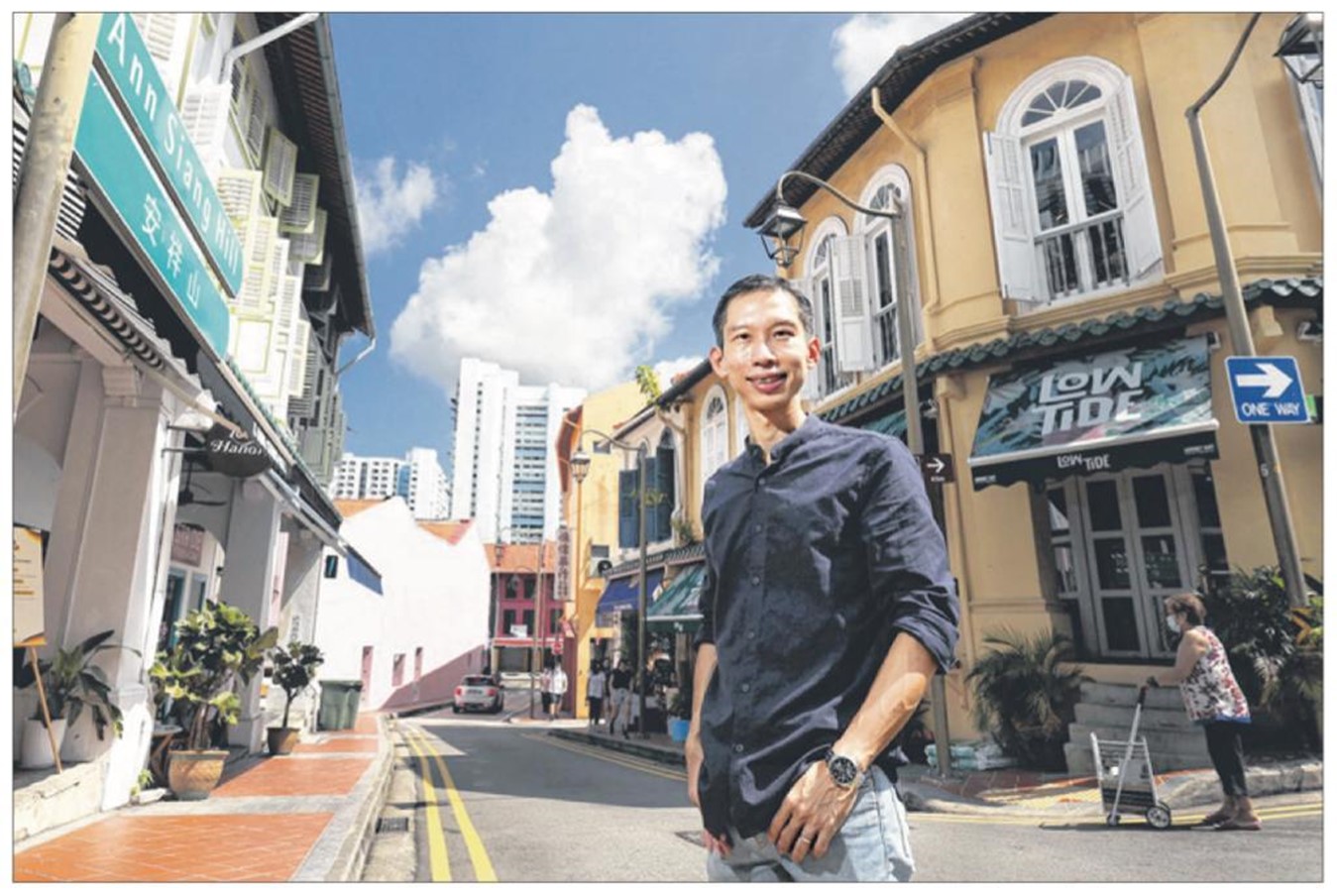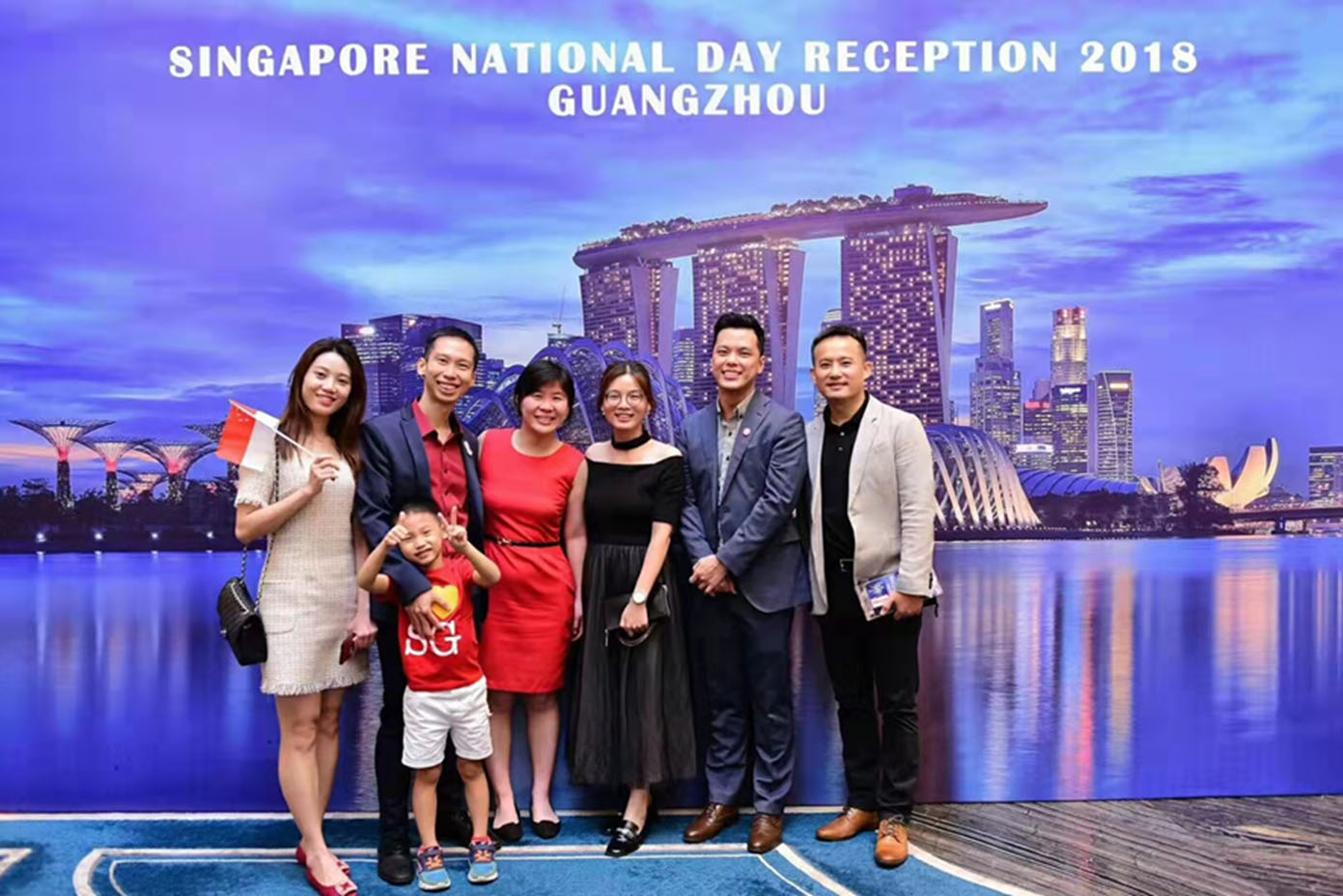[ALUMNI-INFO TEXT="For Law Yock Song (MPAM 2016), new friendships are a catalyst for fresh perspectives and growth.
“My friends call me the Network Multiplier,” says Yock Song, who oversees partnerships and business development at the Singapore-based Tribe Tours. “I’ve lived in China and Vietnam, and I’m the person who will always say, ‘I know someone that I can introduce to you!’” "][/ALUMNI-INFO]
Read on for Yock Song’s story, in his own words.

When I heard about the MPAM programme, two things intrigued me. First, it was about public policy, which I was interested in, and second, it would be conducted in Mandarin. At that point, I was curious about China, but didn’t have any Chinese contacts.
So I enrolled at the LKY School, and began learning alongside classmates from Greater China. Although I was comfortable with the language, taking a Master’s degree in Mandarin was hard work. Initially, I would listen to lectures in Mandarin and record my notes in English. But after a few weeks of classes, I was able to ‘think’ in Chinese too, and that’s when the course became a rich resource for understanding China’s political structure and its business environment.
If I could change one thing about my MPAM experience? I would spend more time with my classmates. I didn’t socialise much, as I was juggling my studies with my work at the Singapore Tourism Board (STB). But it is my biggest regret, because graduate school is also about the friendships that you forge while learning together.
“Like a Fish in Water”

Life occasionally gives you second chances, and mine came after graduation, when I was posted to Guangzhou, China, to support STB’s market development for Chinese cities like Shenzhen and Xiamen. My posting lasted two years, and I often travelled domestically within China. But no matter which city I visited, I was never alone, as LKYSPP classmates were there to welcome me./p>
By catching up with them during these trips, I made up for lost time, and also heard their views on what was happening on the ground. In fact, these meetups became a dipstick for me to gauge consumer sentiment in major Chinese cities.
There is a Chinese saying, 如鱼得水 (ru yu de shui), which literally means ‘like a fish in water.’ That’s how I felt in China, because everything clicked—I was able to understand the policies and lingo, communicate effectively, and play a bridging role to meet the needs of STB and its Chinese stakeholders.
A highlight for me was working with local tour agents to develop a Weekend Getaway package, designed to let Chinese tourists enjoy a quick break in Singapore. There wasn’t a similar product in the market at the time, and when we launched our tours in May 2018, they sold out every weekend!
Beyond success, it was the relationships that I treasured. At my last event before I left Guangzhou, some of our Shenzhen stakeholders took a high-speed train to meet me. They travelled for hours to say goodbye, and there were tears.
A Season of Change & Innovation
In 2019, I left STB after serving them for 10 years. I saw a gap in Singapore’s travel offerings, and wanted to make a difference with curated tours that told deeper stories about our people. I believed our country had much more to offer than its glitzy side—someone could, for example, visit a traditional coffee roastery and have a chat with native roasters about how a local kopi differs from Starbucks coffee.
When I joined Tribe Tours in mid-2019 as co-partner, they were mainly a B2B business, but I knew they could appeal to independent travellers too. As luck would have it, our market expansion plans were interrupted by Covid, and by January 2020, the cancellations were rolling in.
Soon, we were facing six months of zero revenue, as everyone was stuck at home during the lockdowns. To keep busy, we pitched livestream tours early in the game. Our first idea was a tea-break livestream that we called TeaGIF. We wanted to take people behind the scenes at a food factory, show them how the food was made, and have the food delivered to them after.
Looking back at our first livestream, the output quality was terrible! We had no gimbal, no stabiliser; our setup was a smartphone on a selfie stick. Our commentary was great, but we barely interacted with the audience. Quickly, we acquired better equipment and our subsequent tours were more interactive. For instance, if we talked about drawing divination lots at a Chinese temple, we would ask participants to place chopsticks or pens in a cup, to simulate the process of lot drawing.
[ALUMNI-QUOTES TEXT="The response to our livestream tours was good, which opened up a new market for us —corporates and government agencies, who were now looking for activities to engage their staff working from home.
When Covid restrictions eased, we jumped into developing physical game tours, to bring the ‘escape room’ experience outdoors. To attract younger participants, we launched game tours based on darker themes, such as Chinatown Murders, Jewel Heist, and Escape from St John’s Island.
Again, this was a process of experimentation, from shaping the game narratives to training our guides, who had to play along while facilitating the tours. Although it took great effort, it was worth every minute. With a conventional tour, you’ll hear plenty of facts, but you might not remember much when it’s over. With our livestreams and game tours, we create shared and lasting memories between people.
Since then, I’ve also co-founded a travel-tech company and developed an app, Questeon (App Store | Google Play), to help digital natives go on ‘quests’ around Singapore. It’s a quick way to have an impromptu adventure, from going on a scavenger hunt for hidden objects, to visiting historical monuments in search of hidden symbols and stories.
In time, I hope to see Questeon grow into an ecosystem of quests created by participants all over the world, giving everyone new ways to make connections with places and people, no matter where you are."][/ALUMNI-QUOTES]